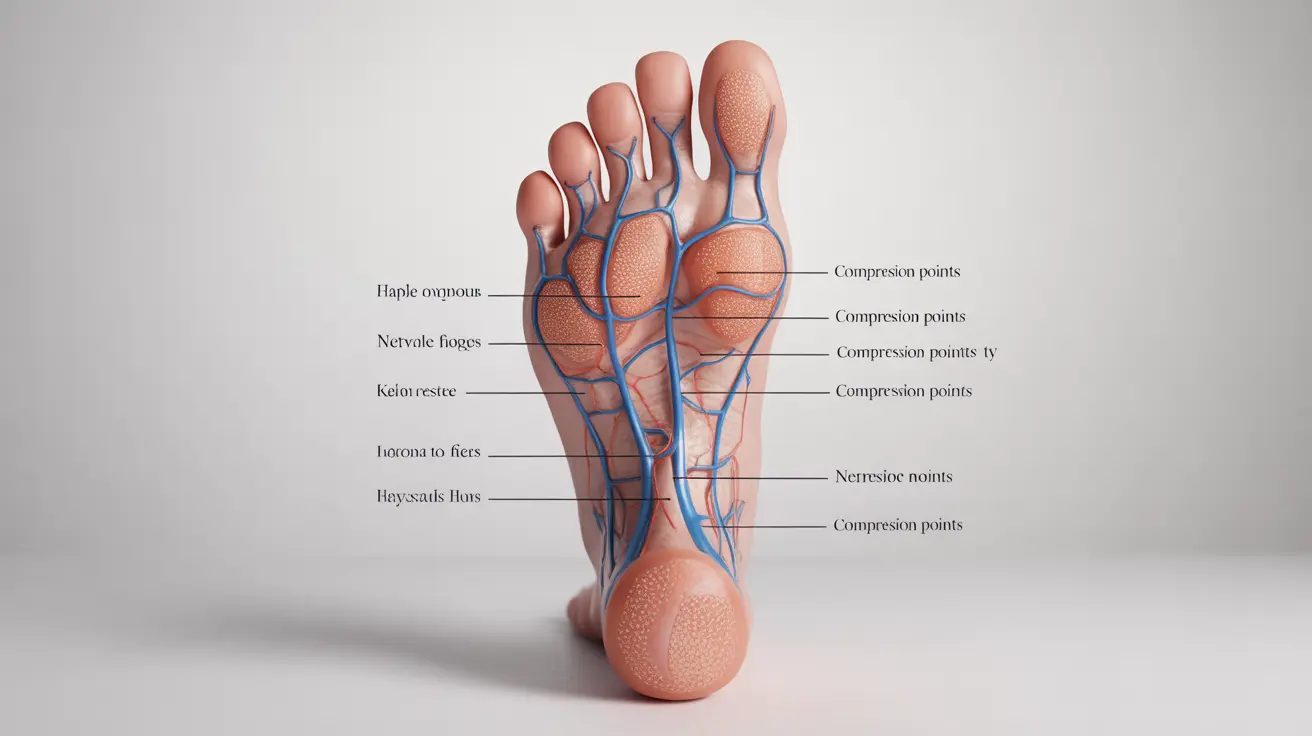Experiencing tingling sensations in your feet can be both uncomfortable and concerning. This pins-and-needles sensation, medically known as paresthesia, can range from a temporary annoyance to a sign of an underlying medical condition that requires attention. Understanding the various causes and available treatments is crucial for managing this common symptom effectively.
While occasional tingling in the feet might occur from something as simple as sitting in an awkward position, persistent or recurring tingling sensations warrant a closer look. Let's explore the various causes, diagnostic approaches, and treatment options available for addressing this condition.
Common Causes of Foot Tingling
Several factors can contribute to tingling sensations in your feet:
Pressure on Nerves
Temporary compression of nerves, often from prolonged sitting or standing in one position, can cause temporary tingling. This usually resolves quickly once the pressure is relieved.
Medical Conditions
More serious underlying conditions that may cause tingling include:
- Diabetes and diabetic neuropathy
- Multiple sclerosis
- Peripheral neuropathy
- Tarsal tunnel syndrome
- Spinal cord issues
Nutritional Factors
Vitamin deficiencies play a significant role in nerve health and can contribute to tingling sensations:
- Vitamin B12 deficiency
- Vitamin B6 deficiency
- Vitamin E deficiency
- Magnesium deficiency
Diagnosis and Medical Evaluation
When experiencing persistent tingling in the feet, your healthcare provider may perform several tests:
- Physical examination
- Blood tests to check for vitamin deficiencies and diabetes
- Nerve conduction studies
- Electromyography (EMG)
- MRI or CT scans when necessary
Treatment Approaches
Managing Diabetic Neuropathy
For individuals with diabetes-related tingling, treatment typically involves:
- Blood sugar control through medication and lifestyle changes
- Regular foot care and inspection
- Prescribed medications for nerve pain
- Physical therapy when appropriate
Addressing Vitamin Deficiencies
Treatment for vitamin-related tingling includes:
- Supplementation under medical supervision
- Dietary modifications to include nutrient-rich foods
- Regular monitoring of vitamin levels
- Lifestyle adjustments to improve nutrient absorption
Prevention and Daily Management
Several strategies can help prevent or manage tingling sensations:
- Regular exercise to improve circulation
- Proper footwear with good support
- Maintaining a healthy weight
- Regular movement when sitting for long periods
- Proper foot care and hygiene
Frequently Asked Questions
- What are the causes of tingling sensation in the feet and how can it be diagnosed?
Tingling in feet can be caused by nerve compression, diabetes, vitamin deficiencies, or neurological conditions. Diagnosis typically involves physical examination, blood tests, nerve conduction studies, and imaging tests when necessary.
- How is diabetic neuropathy treated to stop tingling in the feet?
Diabetic neuropathy is treated through strict blood sugar control, medications for nerve pain, regular foot care, and lifestyle modifications. Working closely with healthcare providers to maintain proper diabetes management is essential.
- Can vitamin deficiencies cause tingling in the feet, and how can they be treated?
Yes, deficiencies in vitamins B12, B6, E, and magnesium can cause tingling in the feet. Treatment involves appropriate supplementation, dietary changes, and addressing any underlying absorption issues.
- What are the common underlying conditions that might cause persistent tingling in the feet?
Common underlying conditions include diabetes, multiple sclerosis, peripheral neuropathy, tarsal tunnel syndrome, and spinal cord issues. Each condition requires specific medical evaluation and treatment approaches.
- How can I prevent or manage tingling sensations in my feet on a daily basis?
Prevention and management strategies include regular exercise, proper footwear, maintaining healthy weight, taking regular breaks from prolonged sitting, and practicing good foot care. If symptoms persist, consult a healthcare provider for proper evaluation and treatment.




